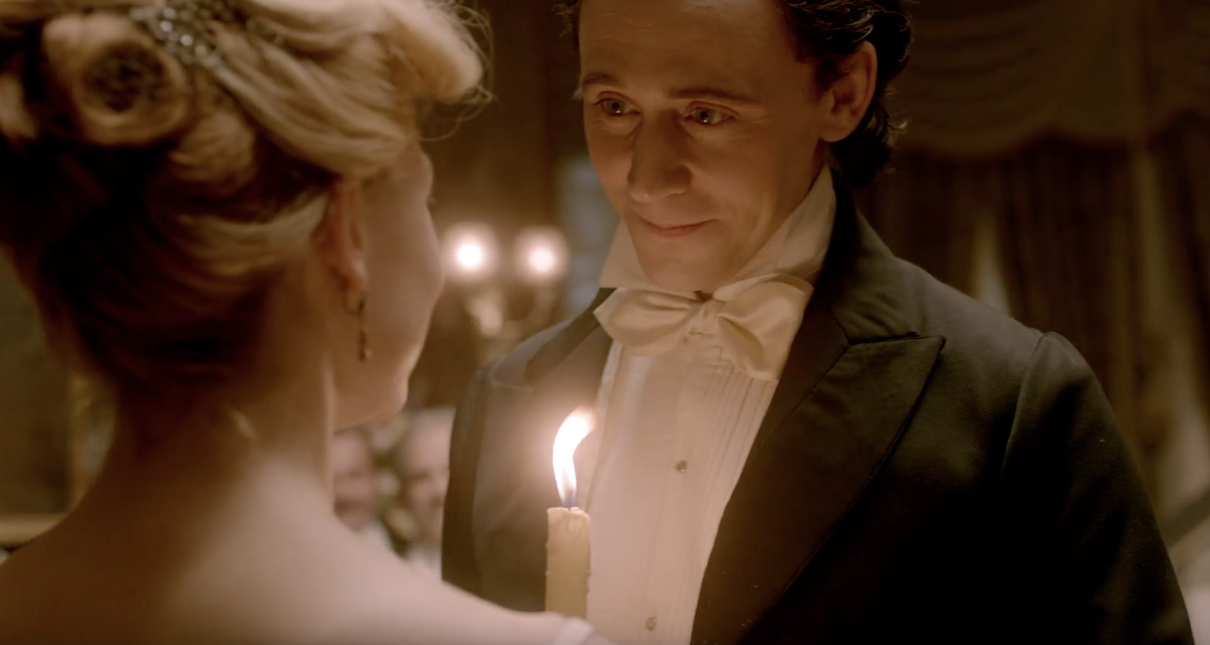Over the years filmmaker supreme Guillermo del Toro has proven to be quite taken with Canada as a shooting location, or more specifically Ontario. His latest film, The Shape of Water, was filmed entirely in the Canadian province and went on to win five Academy Awards, including Best Picture and Best Director for del Toro himself. This, however, was del Toro’s third production shot in the region, with the first being the 2013 mega-budget spectacle Pacific Rim, which was followed two years later by Crimson Peak, an undoubtedly long-awaited re-entry into the horror fantasy genre for the filmmaker. Sadly, the latter is also arguably del Toro’s weakest film to date.
Truth be told, I’m a big fan of Guillermo del Toro’s work. Pan’s Labyrinth is one of my all-time favourite films, his Hellboy films sit comfortably in the annals of comic book cinema (especially after last year’s messy reboot of the franchise), and I saw The Shape of Water at one of its early screenings of the Toronto International Film Festival and gave it a glowing review. There is an immense humanity to each of these films, even when dealing with the inhuman, yet the only discernible humanity I can find in Crimson Peak is it reminds me that del Toro is capable of mistakes.
That’s not to say that the filmmaker’s usual flare for the cinematic is any less apparent here. On the contrary. Del Toro’s direction is as visually arresting as ever, so elevated by the Gothic set design that if you watched the film without sound or subtitles, you would still find yourself inescapably drawn to its dark beauty.
Though, perhaps that might be the best way to watch Crimson Peak. While the film is a triumphant technical achievement, it’s hampered by laughably weak narrative, trite characters and stiff dialogue that all too frequently wades into cringe-inducing cliché.
Based in 1887, Mia Wasikowska plays Edith Cushing, an American heiress and aspiring writer who falls deeply in love with the charming and industrious English baronet Sir Thomas Sharpe (Tom Hiddleston). Thomas and his sister Lucille (Jessica Chastain) have come to America to secure funding from Edith’s father Carter (Jim Beaver) for a clay digging machine prototype. Carter disapproves of Edith’s growing interest in Thomas, but following his suspicious death that was ruled an accident, Edith marries Thomas and moves to the rundown Sharpe estate in England with her new husband and Lucille. However, soon after arriving Edith encounters frightening ghostly apparitions who hint that all is not as it seems with the Sharpes.
The story certainly brandishes a palpable Victorian sensibility with gothic nuances, featuring everything from a dilapidated family home that personifies the film’s underlying themes, to a romance story with deceptive undertones. Throw in a healthy dose of the supernatural, and you get a glimpse at what a novel by Jane Austen and Edgar Allen Poe would be like. But if you think such a collaboration sounds inherently problematic, you’d be right.
It feels as though del Toro and co-writer Matthew Robbins are telling two different stories at times, with the links between the grounded and supernatural elements being used as novelty plot devices and nothing more. It’s a mystery thriller that happens to have ghosts in it, and what’s worse, the mystery aspect is so utterly predictable that I had the film’s story pegged halfway through and was offended by its so-called ‘big reveals.’ Where’s the wondrous unpredictability of Pan’s Labyrinth or The Shape of Water?
The real problem here is a lack of commitment to substance. Del Toro has stated before that he “wanted this [Crimson Peak] to feel like a throwback” that was “very set-oriented.” The writer, producer and director achieves just that, but at the total expense of the film’s core elements of horror and romance.
He is so preoccupied with classic horror homage, in fact, that he ironically forgets to make the film scary, while the moments of graphic violence consequently feel out of place. Even the film’s one instance of profanity shows an odd lack of devotion to the script. Many Hollywood filmmakers place an overt emphasis on visuals at the expense of narrative and the characters that populate it, but del Toro, to me, had always been the most notable exception to that rule. But now, Crimson Peak is the exception to del Toro’s own rule.
![]()
![]()
![]()
![]()
![]()
![]()
![]()
![]()
![]()
![]()

